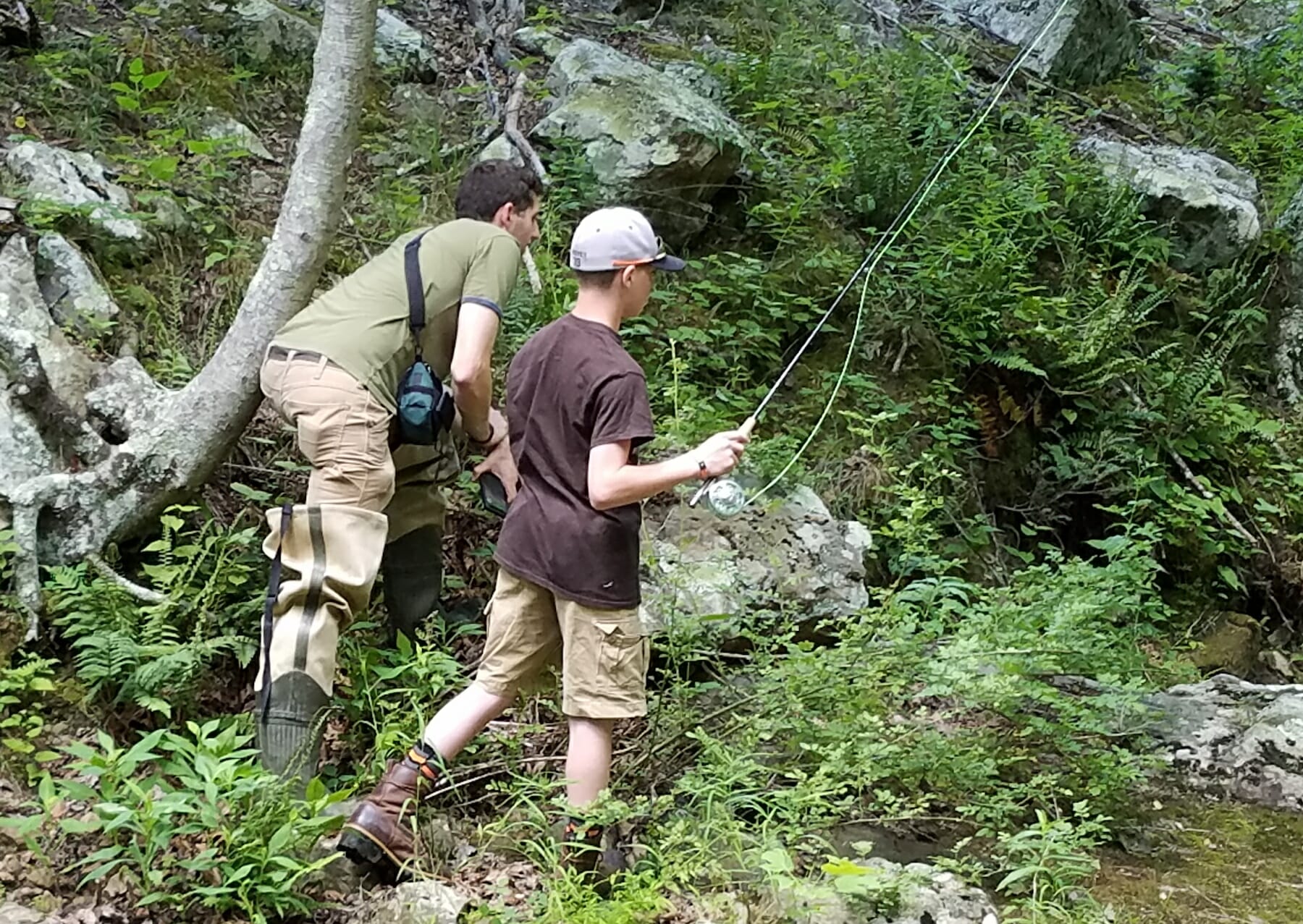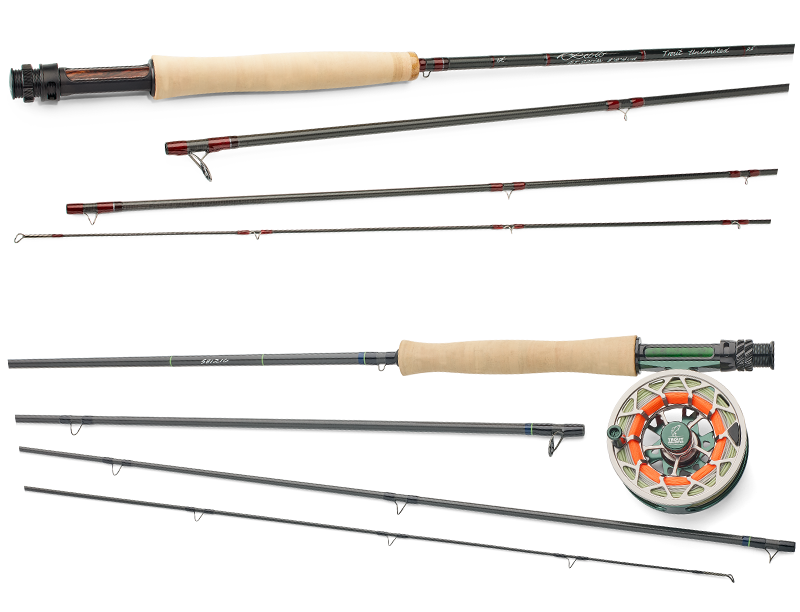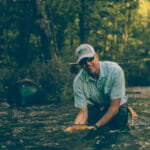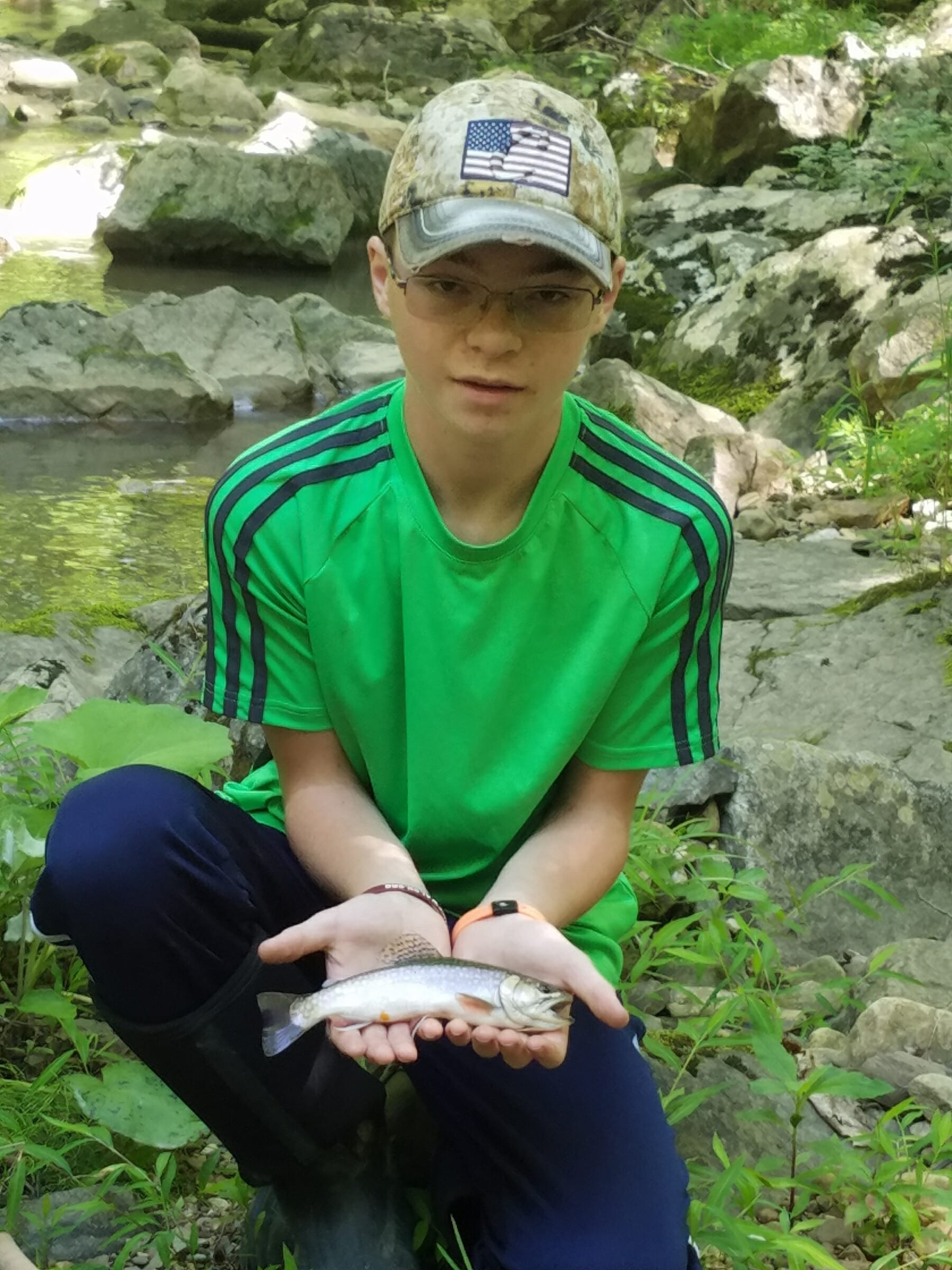The author’s son, RJ, shows off a native brook trout from the restored stream on the family’s land.
By Greg Hulver
I come from a family of farmers in the Eastern Panhandle of West Virginia, specifically, the Cacapon River watershed. Long ago my family settled this area, and the land that we own has been handed down through the generations. I grew up hunting, fishing, and farming our family’s land and waters, and have developed a profound appreciation of what we have here.
I also have developed an appreciation in recent years of Farm Bill programs that are helping me and others in my community repair streams on our properties, not only improving habitat for trout and other aquatic creatures, but also helping to send cleaner water downstream to the Chesapeake Bay.
Several years ago I started to notice that the brook trout fishery on our land had begun to dwindle. We used to catch lots of fish, but had been finding that timbering and livestock grazing had left the stream with a lack of shade and an over-widened creek bed, creating a habitat where brook trout no longer could thrive.
I reached out to Trout Unlimited and they responded by giving me recommendations of what could be done to restore my property, helping me step through the federal programs necessary to assist with this work, and installing the practices necessary to restore my stream and land.
Working with TU, the Natural Resource Conservation Service, the Farm Service Agency, and the Cacapon and Lost Rivers Land Trust afforded me the ability to restore and protect my stream.

Through the Conservation Reserve Enhancement Program (CREP) we have fenced out the cattle and will plant trees to restore the much-needed riparian buffer.
Through the Environmental Quality Incentives Programs (EQIP) we have installed habitat structures in the stream to restore the eroding streams and create pools, so that trout may once again thrive. Through funding provided by the National Fish and Wildlife Foundation we closed on a conservation easement to perpetually protect the wildlife and fisheries resources on this land.
As a result of the availability of funding through these programs and help from the agency and non-profit staff, we have developed a community of conservation stewards, and have the potential to fix this small tributary to the Lost River.
We used my tractor and labor to install my neighbor’s water troughs where he has fenced the stream out, and I have helped to fund and install my own project as well.
Many of my neighbors have begun to participate in these programs as well because they see it’s the right thing to do for the land.
The US Fish and Wildlife Service has helped install the work, and the West Virginia Division of Highways and the West Virginia Conservation Agency, also have been involved, replacing culverts that have been impairing the watershed by fragmenting fish populations upstream, and installing ditch relief culverts to reduce run off that was causing sedimentation and increasing water temperatures.
I fully support continued funding for these important programs, which have helped to inspire a community to get together and fix something we all care so much about.
Greg Hulver is a lifelong West Virginian. In early March he will travel to Washington DC, as he has in years past, to meet with lawmakers and their staffs to discuss his appreciation of and support for Farm Bill programs.



